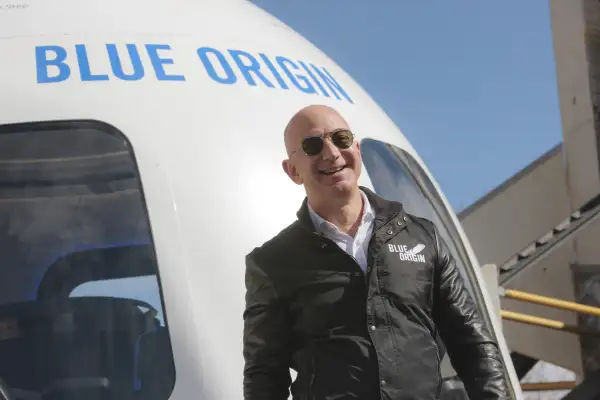This Is Jeff Bezos' Best Advice About Making Big Decisions
Money is not a client of any investment adviser featured on this page. The information provided on this page is for educational purposes only and is not intended as investment advice. Money does not offer advisory services.

No one likes to look foolish. But waiting too long to make a crucial decision -- whether professional or personal -- can be costly.
Amazon CEO Jeff Bezos thinks he knows the right balance to strike.
In his annual letter to shareholders, released Wednesday, he reflected on how he keeps his Internet retail behemoth competitive:
"Most decisions should probably be made with somewhere around 70% of the information you wish you had. If you wait for 90%, in most cases, you're probably being slow. Plus, either way, you need to be good at quickly recognizing and correcting bad decisions. If you're good at course correcting, being wrong may be less costly than you think, whereas being slow is going to be expensive for sure."
The comment immediately scored a reaction on Twitter.
Of course, Bezos isn't the only entrepreneur to emphasize a quick, flexible approach to decision making. It's known as "failing fast." The idea is that any complicated enterprise requires a lot of trial and error. In the long run, those who are willing to get started -- even with an imperfect prototype -- and adapt will end up with a better result than competitors who want to hone every aspect of a project to perfection.
So why don't more of us run our lives, or at least our careers, this way?
One reason has to do with what type of decisions we find ourselves making, and whether they're for ourselves or for our employers. As Bezos, acknowledges, fast-paced decision making is "easy for start-ups and very challenging for large organizations," which tend to have evolved a set way of doing things and face bigger potential risks if a misstep alienates customers.
But another reason may be more even more important, and it's tied to the way our brains work. Psychologists have found that, for one reason or another, people face more mental anguish contemplating a potential loss than they gain pleasure from an equal-sized success. This tendency toward "loss aversion" can be paralyzing, leading us to avoid taking chances -- even when they are more likely to rebound to our favor.
